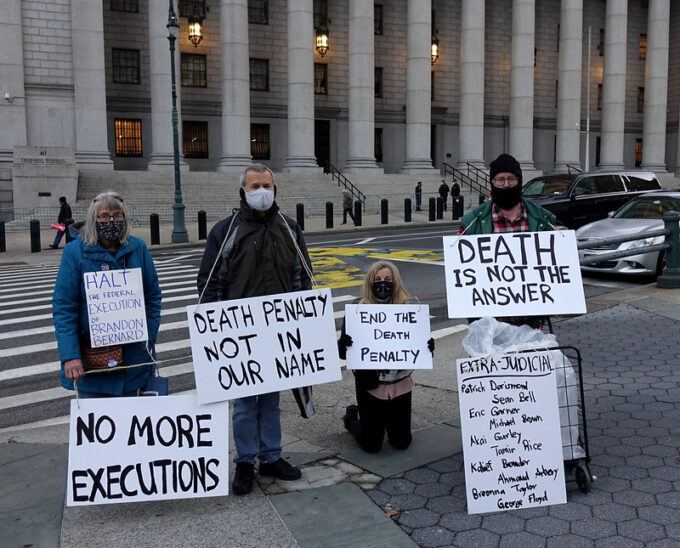Capital Punishment Should Be Abolished, Not Expanded

Photograph Source: Felton Davis – CC BY 2.0
The death penalty remains a dark blight on the United States’ criminal justice record, and unfortunately, it’s not going away any time soon.
Ron Desantis just signed a troubling law to end the requirement that juries must vote unanimously to recommend the death penalty. Now Florida juries can recommend capital punishment as long as eight out of twelve jurors concur. Executions have been in steady decline in the U.S. as many states move away from the death penalty, but some Republican-lead states have continued their ardent support of putting inmates to death.
States and the federal government ought to end this inhumane and risky form of punishment, not expand its practice.
Capital punishment is not always a seamless process, and botched executions lead to horrific complications in the death penalty. In Oklahoma in 2014, for example, a 38-year-old death row inmate was left “writhing, clenching his teeth and straining to lift his head off the pillow” after being administered what was then a new three-drug-combination for executions, according to an AP News report. The execution proceedings were halted, but the man died of a heart attack 43 minutes from when the execution procedure began.
After three consecutive flawed execution processes, Oklahoma implemented a moratorium on executions in 2015, but in 2021, Oklahoma resumed executions with its three-drug-combination. That same year, John Marion Grant started convulsing and vomiting after the administration of the first of the three drugs which was supposed to knock him unconscious before he ultimately died.
These mishaps render capital punishment more akin to torture than the administration of justice. Drug companies, seeking to avoid association with the death penalty, are blocking the use of their products for death penalty proceedings, causing a nationwide shortage of lethal injection drugs. As a result, states are now looking to experiment with novel means of putting inmates to death.
But all means for carrying out the death penalty have the potential to be botched or induce unnecessary suffering. Even death by firing squad, which some states have recently approved as an alternative to lethal injection, can possibly leave a prisoner conscious and in excruciating pain for a whole 10 seconds if bullets do not hit the right spot.
In addition to the risk of torturing a prisoner, the most problematic element of the death penalty is the possibility of sentencing innocent people.
Since 1973, 191 death-row inmates have been exonerated of all charges. For every 8 inmates executed, 1 death-row inmate is exonerated, and there is strong evidence that numerous individuals have been wrongfully put to death over the past few decades. Unfortunately, prisoners’ cases tend to die with them and receive little attention or investigation once their death sentence is carried out.
The stories of those exonerated, however, conspicuously illuminate how the cards can be stacked against a defendant, resulting in a wrongful conviction. Walter Ogrod, for example, was convicted of murdering a young girl in 1996 and was sentenced to death. Ultimately, decades later, his case was reviewed and re-investigated by the Philadelphia County District Attorney’s Office Conviction Integrity Unit. Patricia Cummings, the unit’s chief, and Assistant District Attorney Carrie Wood wrote in 2020, “At trial, Ogrod found himself adrift in a perfect storm of unreliable scientific evidence, prosecutorial misconduct, Brady violations, and false testimony.” In addition, the detectives handling his case had a knack for employing unscrupulous means to produce wrongful convictions.
Ogrod was exonerated in 2020.
The torture inflicted upon defendants during some botched executions illustrates the inhumanity of the death penalty. But the risk of putting innocent men and women to death should alone be enough for the federal government and the 27 states that still have capital punishment to abolish the practice.
No comments:
Post a Comment